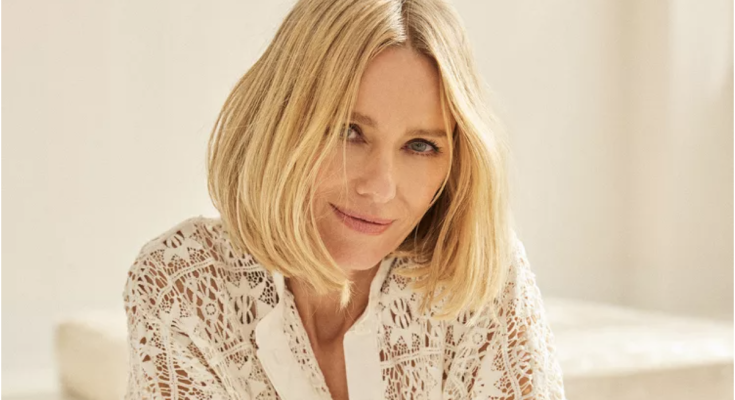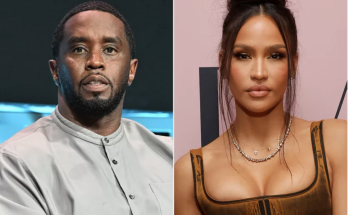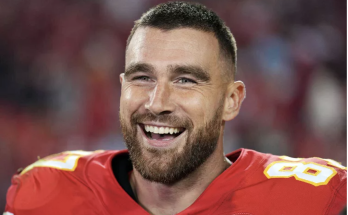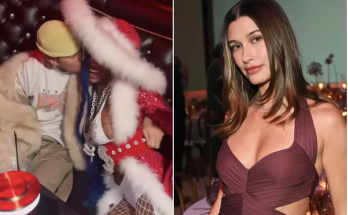The actress, 56, opens up about sex, aging and her menopause journey in her new book ‘Dare I Say It: Everything I Wish I’d Known About Menopause’
:max_bytes(150000):strip_icc():focal(770x438:772x440):format(webp)/naomi-watts-1-012025-82491eab9f0d4bfcb4615d8168440f4c.jpg)
Naomi Watts has had a few awkward moments as mom to two teens.
Like the time one of them came across her new vibrator (glow-in-the-dark, with multiple speeds) lying on her bed. “Yeah, it was embarrassing for my teenager and me,” Watts tells PEOPLE of the discovery. “But it wasn’t so surprising.”
That’s because her kids—Sasha, 17, and Kai, 16, whom she shares with former partner Liev Schreiber—have gotten used to having a mom who isn’t afraid to talk about things that are often taboo, like her own challenging journey into menopause, which she chronicles in her new book Dare I Say It: Everything I Wish I’d Known About Menopause.
:max_bytes(150000):strip_icc():focal(492x0:494x2):format(webp)/naomi-watts-dare-i-say-it-book-cover-012025-0ce080a3cd944dd0b6cb3cc8cdcf3362.jpg)
“I think there are moments where they’re completely grossed out, and there are moments where they’re like, ‘Rock on Mom,’” says Watts, 56, of her teens’ reaction to her openness.
:max_bytes(150000):strip_icc():focal(740x215:742x217):format(webp)/naomi-watts-kids-012025-135e1bdb07d443079efd230276621444.jpg)
Although the Mulholland Drive actress has become one of most recognizable voices on the topic, it took years before she was ready to speak up about her experience. At 36, just after starring in Peter Jackson’s 2005 blockbuster King Kong—and just as she was trying to have children—she was shocked to learn she was going through early menopause.
:max_bytes(150000):strip_icc():focal(749x0:751x2):format(webp)/naomi-watts-king-kong-012025-47628e14bd31493786fc519db95e3343.jpg)
In an industry where growing older has long been a liability for a woman, the actress kept quiet. “I spent a long time living in secrecy and shame,” she says.
Night sweats, migraines, mood swings, dry skin, urinary tract infections, thinning hair: Watts suffered them all before later finding relief in hormone replacement therapy and lifestyle changes. And, after the break-up of her 11-year relationship with Schreiber in 2016, she also found herself navigating dating as a menopausal woman. “It was all very new to me.”
When she fell for her co-star in the Netflix series Gypsy in 2017 — now husband Billy Crudup, 56 — she had a moment of panic before they spent their first night together. In her book, she recalls ducking into the bathroom, attempting to scratch off the hormone patch she’d been wearing and then blurting out to Crudup, “I didn’t want you to see it because then you would know I’m in early menopause, which means I am old.”
His response? He smiled, offered to help, and then pointed out that they were the same age. “If it makes you feel better,” The Morning Show actor told her, “I’ve got gray hairs on my balls.” Those were, she writes “the most romantic words I’ve ever heard, onscreen or off.”
:max_bytes(150000):strip_icc():focal(599x0:601x2):format(webp)/billy-crudup-naomi-watts-2024-emmy-awards-091524-1-7d8c003c4f2f4e45b3308dc4d4e8f17d.jpg)
That kind of understanding “was everything,” she tells PEOPLE of Crudup, whom she married in 2023. “I felt seen and heard and there’s so much love in that.”
Watts started researching to improve her own understanding of the new phase of her life, and by 2022 she used her knowledge, and her experience, to launch Stripes Beauty, her menopause skincare and wellness brand. After being ashamed of her symptoms for years, she began to “lean straight in,” she says. “One of my greatest discoveries is owning my vulnerabilities and turning them into strengths.”
:max_bytes(150000):strip_icc():focal(664x0:666x2):format(webp)/naomi-watts-stripes-012025-19871492d5224abe9a3923a0b48b73d7.jpg)
She became such a recognizable leader in the movement to normalize menopause that she started receiving texts from other actresses telling her when they’d reached the stage—“I’d welcome them to the club.”
Although she enjoys her unexpected role as “Hollywood’s agony aunt” for menopause, she still thought carefully before deciding to write a book. “It required truth and awkwardness and fears,” she says. “But this is the last female untouched conversation, and it needed opening up.”
The result is part memoir, part advice manual based on dozens of interviews with menopause experts. “I feel empowered by sharing because it’s a natural part of life.”
I’m not the same woman I was when I was younger. I’m more confident in what I like and dislike. I’m kinder to myself.
She hopes it will help women feel “heard and less alone” as they undergo some of the challenges of aging—including, in her case, watching her children prepare for independence. “I have one kid who’s a senior and smack in the middle of college applications,” she says. “You’re seeing an end and a beginning, and that’s filled with questions, grief and excitement.”
But she has another message to spread as well: embrace the transition.
“I’m not the same woman I was when I was younger. All through my life, I was comparing myself to others. That changed markedly around 50,” she says. “In my book I ask, ‘What if the point of menopause is to break up with our former self?’ It’s important to make room for a reinvention. I am more confident in what I like and dislike now. I have stronger friendships. I’m kinder to myself. When I was younger, I took risks through naivete. Now I take on challenges knowing I can put it all back together if I fail.”



